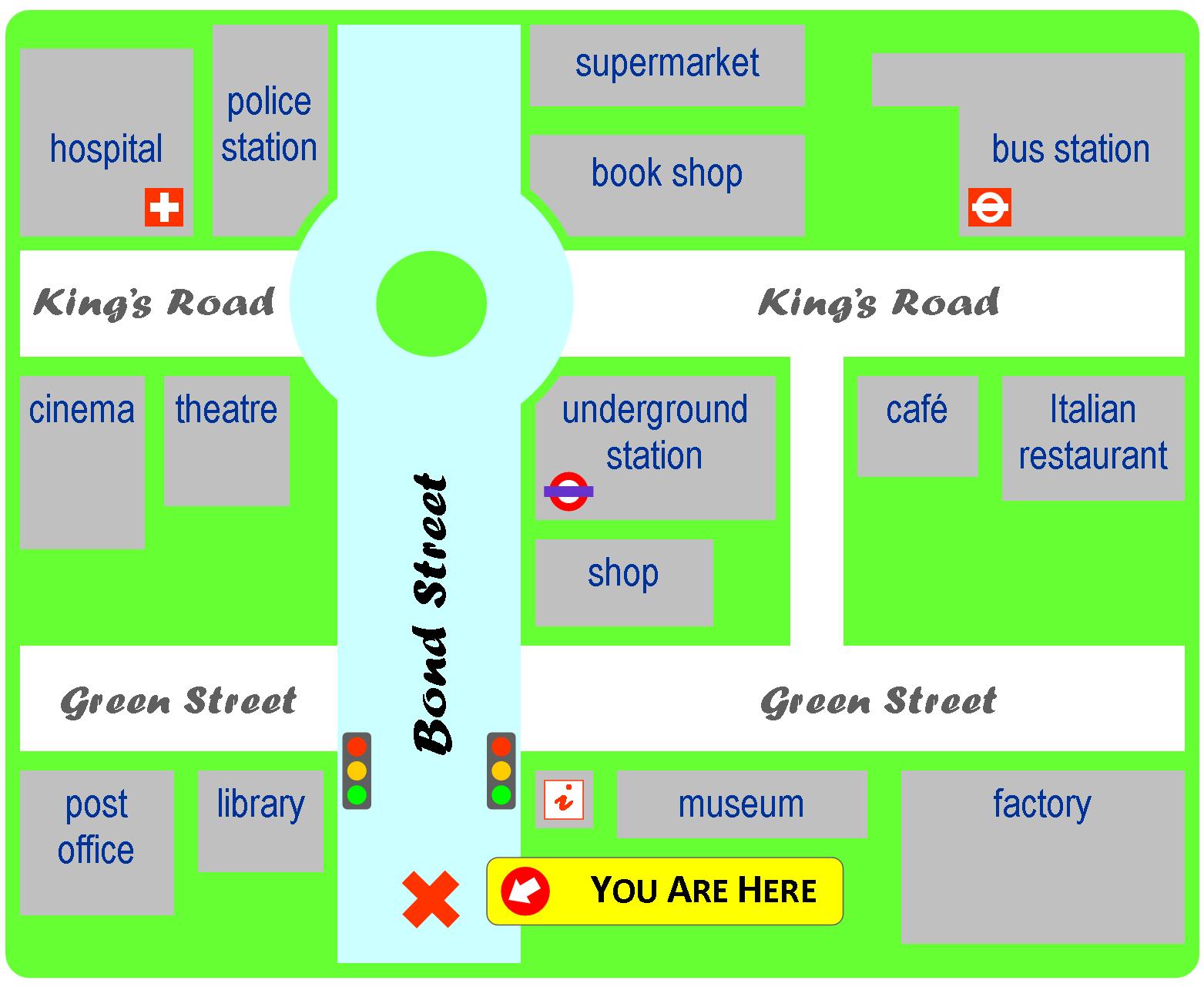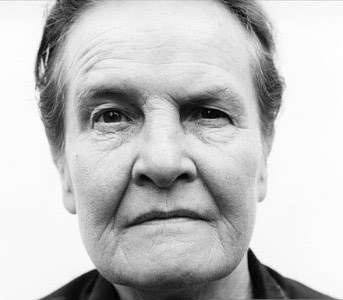by John Schwenkler
This is the first in a planned series of posts discussing different ways of pursuing philosophical understanding.

I am the sort of person who can be very good at finding my way around a place, while having almost no ability to translate that capacity into a realistic map of the place that I am able to find my way around.
This place could be a building, a neighborhood, a city, or a more distant set of locations that are connected by major roads. In each case what allows me to get around is the knowledge of what I can do at various landmarks that will take me from one location to another: for example, turn left at the Exxon station to get to the supermarket; walk past the bathrooms and then up the stairs to the right to reach the department office; take the interstate south to exit 53A, then follow the highway over the bridge and take the first left to get to the beach.
My mastery of these landmark-based strategies means that sometimes I am able to give good directions concerning how to get from here to there in places that I know my way around, though doing this requires me to simulate in my imagination what the next relevant landmark will be after taking a given step—and this sort of remembering is something else that I am not always good at doing. Still, when I do manage to remember, or am reminded of, a given landmark along my memorized route, then what I remember is something I already knew: for example, that the road out of the neighborhood goes past an Exxon station, at which one needs to turn left to get to the supermarket.
With maps, things are different. Even if I am extremely adept at getting around a place, often I will have had no idea that the place I am able to get around has the layout that a map displays it as having: no idea, that is, that the locations I know how to get between are located with respect to one another in the ways that the map displays. In knowing how to find my way around, all I knew was what to do, upon seeing a certain landmark, in order to continue on the way to a given place. And I knew all of this very well without knowing much of anything about the spatial structure of the place I was able to navigate, or the spatial relationships between the landmarks I could find my way between.
Based on conversations with other people about these matters, my sense is that I may be a sort of person who is peculiarly bad at aligning my knowledge of how to get around a place with a representation of that place in the form of a map—though there is some experimental evidence suggesting that landmark-based navigation is the default human strategy for getting around an environment. My present interest, however, is not in these questions, but in a wider phenomenon that this is only a single example of, and which I believe provides a common impetus for philosophical inquiry.
**
There are lots of things that we know about the world that we cannot easily put into words. By “the world” as I use it here, I mean not only the spaces we inhabit or the wider physical world that they are part of, but also ourselves, our society, and our nature as human beings—including a great deal of what, as human beings, is good and bad for us. It’s these last few categories that are the most interesting to me here, since they concern things that are the usual subject matter of philosophy.

I’ll start with a simple example, drawn from the philosopher Elizabeth Anscombe. Imagine that a friend tells you that she’s about to fail a test. Surprised by what she said, you answer “Surely you aren’t that bad at the subject!”—at which point your friend tells you that, indeed, she isn’t bad at the subject at all, but this isn’t why she is going to fail. It’s rather that she wants to get back at her parents for all of the pressure they have been putting on her.
If your friend has managed to get her point across, her response will get you to draw an important distinction. You will realize that, in saying “I am going to fail this test,” your friend was telling you of her intention to do this—and that, if indeed she goes on to fail the test, then she’ll have done so intentionally or on purpose. Having realized this, you’ll be in a position to respond to her appropriately: for example, by trying to persuade your friend that this really isn’t a good way of getting back at her parents, rather than by offering to help her memorize a couple of key formulas. You’ll try to convince your friend not to fail the test rather than trying to help her not to do so—since the latter thing isn’t something she needs your help in at all.
Everything above is the sort of thing you’ll come to know about your friend’s situation, and will be able to bring to bear in responding to it, just in virtue of having grown up in human society. But it is far less easy to say what it is that you know, when you know what it is to express a plan or intention, or to do something intentionally or on purpose. What is the difference between planning or intending to do a certain thing, and simply thinking that this is something one is going to do? What is the difference between doing something intentionally or on purpose, and simply having it happen that one does it?
If you take these questions seriously and try to answer them, then you are doing philosophy—in this case, thinking philosophically about the nature of action and intention. Notice, however, that this thinking will take its bearing from something you knew already, namely what it is to have an intention and then act on it. After all, if you didn’t know this, then you couldn’t have known what your friend was trying to tell you when she said that she wanted to get back at her parents. If you didn’t know what it was to have the intention to fail a test, then you couldn’t have known that this is what your friend was trying to tell you of. If you didn’t know that, then you might have responded to your friend by telling her that she was good enough at the subject that she could pass the test in spite of how she was feeling about her parents.
But of course you wouldn’t have said such a thing. You knew full well what your friend was trying to tell you. What you didn’t know was what it was that you thereby knew. You couldn’t make your knowledge explicit, or put it into a map-like form. In trying to do that you would be doing philosophy, where this means reflecting on something that you already know well enough to apply this knowledge in various real-life contexts, in the hope of becoming articulate about the knowledge that you are thereby able to apply.
**
This description of philosophy as becoming articulate about things that we already know is only one among many descriptions of what philosophy is. Below I will consider a few questions about it.
(1) Is this project conservative and uncritical? As I have described it here, the basis of philosophical knowledge is the knowledge we already have of ourselves and our world. This suggests that philosophy simply takes for granted our ordinary ways of thinking about the world, and isn’t concerned with critical scrutiny of our pre-philosophical beliefs—and this sounds like a very unphilosophical attitude!
But this complaint is misplaced. It is entirely possible that in making explicit what we already know about the world, we will find that we didn’t know as much as we thought—either because there were gaps in our knowledge, or tensions or outright conflicts between some of our pre-philosophical commitments. It is also possible to take a description of the world as we ordinarily know it, and find that it compares unfavorably with a description of the world as it is known in some other way—for example, from the perspective of some scientific inquiry. Finally, it can be possible to take the picture of the world that emerges from philosophical reflection and use it to criticize various pieces of received wisdom, i.e. things that pass as common sense despite being in conflict with the way things really are.
(2) Does this project gain us any new knowledge? Philosophy is supposed to be the quest for wisdom or understanding. But I have described it just as a way of articulating what we already know. If philosophy doesn’t help us to move beyond the knowledge we already have, then what is the value of doing it?
The analogy with maps will help us here. If you navigate between places in the way that I usually do, it can be possible for you to know a route between place A and place B and another route between B and place C, without knowing any route between A and C that doesn’t use B as an intermediary landmark. If this is your situation, then when you see where A, B, and C all lie on a map, you’ll learn something valuable that you didn’t know before. In a similar way, philosophical articulacy about our pre-philosophical knowledge can help us to see connections and interrelations that weren’t evident to us before we started doing philosophy.
(3) Is this a way of learning about our concepts, or about the things themselves? As I have described philosophy, it’s a matter of reflecting on our ordinary understanding in order to become more articulate about what it involves. This suggests the idea, which many important philosophers have endorsed, that what it is that we come to know through doing philosophy is (“just”) the nature of our concepts of the world. We don’t, however, actually learn anything about the things that those are concepts of.
This position makes an assumption that I have consistently rejected in this essay. In my original example, if I were able to take my ability to get around a place and turn it into a map, then if I did a good job my map would show the spatial layout of the place I am able to get around, and not of my merely subjective representation of it. In the same way, in articulating what you know when you know that your friend has told you of her intention to fail the test, you articulate what intention itself is, and not your merely subjective representation of it.
Of course it is possible to fail at this. In doing philosophy, sometimes we think we are articulating how things themselves are, when in fact our vision is distorted by a false or inaccurate way of thinking. This is a possibility that philosophy has to take seriously. I will return to it in a future post.
